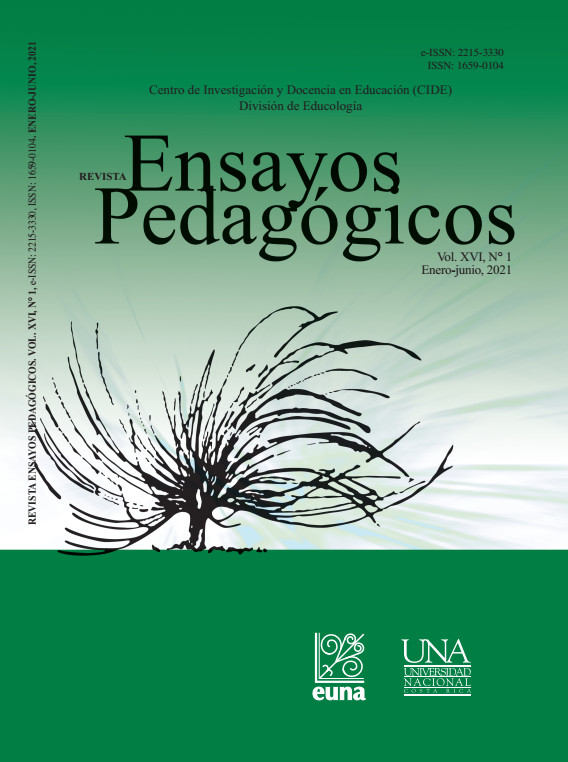From Speech to Facts: Educational Policy of the Ministry of Public Education of Costa Rica
DOI:
https://doi.org/10.15359/rep.16-1.6Keywords:
education, educational policy, educative methodology, educational systemAbstract
In November 17th, 2017, the Ministry of Education of Costa Rica (MEP, for its acronym in Spanish) published a new policy in terms of education. It emphasizes on positioning the validation of humans as diverse and complex and the necessity of educational practices that project equality and inclusivity for all the students in the educational system. However, when analyzing critically the political discourse of the ministry of education and the reality that is faced in the classrooms, it is possible to discover the real effects of the policy, many of them covered in the shadows of MEP. A new policy does not mean a change in the paradigm of education. In this academic essay, different theoretical referents are used to analyze the real implications and contradictions of the new policy as well as the neoliberal influences in the changes undertaken in the institution.
References
Asamblea Legislativa. (2019). Ley de educación y formación técnica dual. La Gaceta, San José, Costa Rica.
Arnaudo, F. (2013). Teoría de la plusvalía en Marx. Revista Cultura Económica, 31(86), 43-49. Recuperado de https://repositorio.uca.edu.ar/bitstream/123456789/2111/1/teoria-plusvalia-marx-arnaudo.pdf
Freire, P. (1985). La naturaleza política de la educación: Cultura, poder y liberación. Barcelona: Centro de Publicaciones del Ministerio de Educación y Ciencia y Ediciones Paidós Ibérica.
Freire, P. (1987). La educación como práctica de la libertad. México, D. F.: Andrómeda.
Freire, P., y Shor, I. (2014). Miedo y osadía. Buenos Aires: Siglo Veintiuno Editores.
Giroux, H. (2004). Teoría y resistencia en educación. México: Siglo XXI-UNAM.
Gómez, J. (1987). Intelectuales y pueblo un acercamiento a la luz de Antonio Gramsci. San José: Departamento Ecuménico de Investigaciones.
Gramsci, A. (2014). Antología Volumen 2. Buenos Aires: Siglo Veintiuno Editores.
Gramsci, A. (1967). La formación de los intelectuales. México: Editorial Grijalbo.
MEP. (2017). Política educativa de la persona: Centro del proceso educativo y sujeto transformador de la sociedad. San José, Costa Rica: Autor.
Muñoz, C. (2007). Un nuevo paradigma: “La quinta generación de la evaluación”. Lauros, 13(23),158-198. Recuperado de http://www.redalyc.org/articulo.oa?id=76102309
Rindfleisch, E. y Maenning-Fortmann, F. (2019). Formación dual en Alemania formar técnicos por medio de la teoría y la práctica. Alemania: Konrad Adenauer Stiftung.
Robles, A. (2017). Sistema educativo costarricense: ¿Puerta o barrera para el pensamiento crítico? Revista Ensayos Pedagógicos, 12(2), 17-31. https://doi.org/10.15359/rep.12-2.1
Saiz, C. (2019). Pensamiento crítico y eficacia. Madrid: Ediciones Pirámide.
Published
How to Cite
Issue
Section
License
Ensayos Pedagógicos is subscribed to the Attribution-NonCommertial-NoDerivatives 4.0 International Creative Commons Licence, which allows both authors and readers to freely download, store, copy, and distribute the final approved publisehd version of the manuscript (post-print) as long as this is done without commercial purposes, no derivative works are generated, and the source and author are mentioned. As well, Ensayos Pedagógicos declares that authors will remain the rightful owners of the copyrights of their work in perpetuity.







